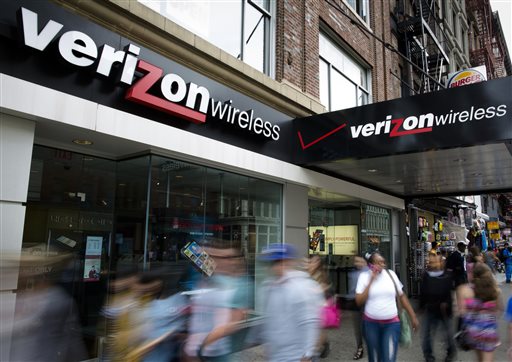-
Tips for becoming a good boxer - November 6, 2020
-
7 expert tips for making your hens night a memorable one - November 6, 2020
-
5 reasons to host your Christmas party on a cruise boat - November 6, 2020
-
What to do when you’re charged with a crime - November 6, 2020
-
Should you get one or multiple dogs? Here’s all you need to know - November 3, 2020
-
A Guide: How to Build Your Very Own Magic Mirror - February 14, 2019
-
Our Top Inspirational Baseball Stars - November 24, 2018
-
Five Tech Tools That Will Help You Turn Your Blog into a Business - November 24, 2018
-
How to Indulge on Vacation without Expanding Your Waist - November 9, 2018
-
5 Strategies for Businesses to Appeal to Today’s Increasingly Mobile-Crazed Customers - November 9, 2018
You could be owed a refund from Verizon and Sprint
You could get a refund from Verizon and Sprint within a week – Verizon and Sprint customers can claim their refunds for unauthorized charges on their bills within a week.
Advertisement
If you’ve fallen victim to cramming on Verizon, you can apply for your refund at this website and you can call the FCC to ask questions about your potential refund by calling 1-888-726-7063.
Consumers who experienced “cramming” usually were charged small one-time fees or monthly subscription fees of $9.99 per month for premium text message subscription services involving ringtones, horoscopes, trivia, or sports scores that they did not request.
As a result of the settlements, both companies are now required to get customer approval before charging for third-party messages.
In 2014, AT&T agreed to pay $105 million to settle its mobile cramming cases, including $80 million in consumer refunds.
A federal settlement awarded some $158 million – $90 million from Verizon and $68 million from Sprint – to victims of the practice, with a collection deadline of December 31 of this year, the NBC4 story said.
Verizon and Sprint have previously said they stopped the cramming practice long before the government began its investigations.
According to Verizon, refund amounts may be lower than expected depending on the total number of claims filed. That’s also assuming customers who try to make claims are eligible in the first place. The activity has come to be known as “cramming”.
Advertisement
The CFPB accused both companies of failing “to track customer complaints about unauthorized charges” and failing “to provide full and prompt remediation to consumers subjected to these charges”.




























